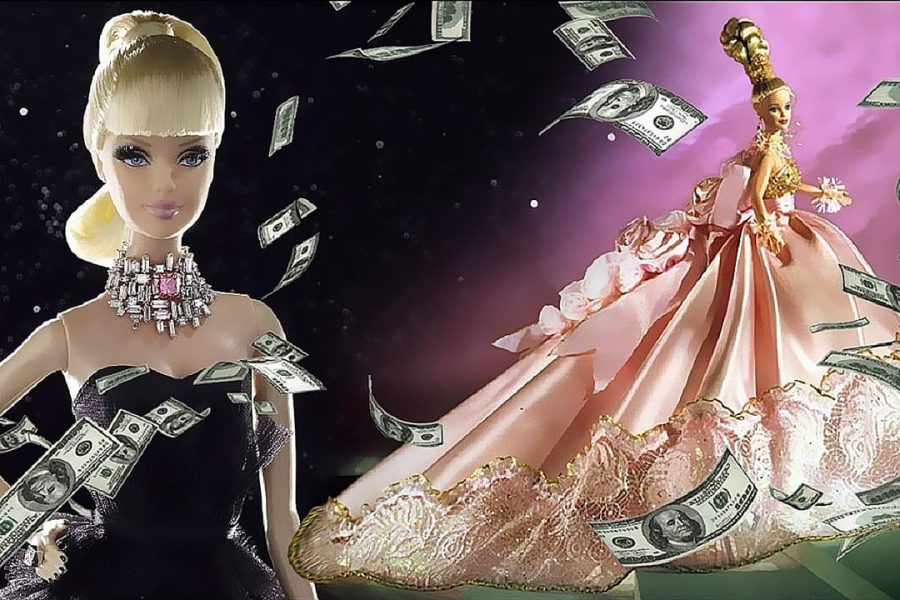There has long been a widespread myth that the courts are inundated with frivolous lawsuits, even though statistically, relatively few lawsuits actually meet the criteria for frivolity. That may be because, between conception and execution, some people realize their lawsuits are a terrible idea. Like these 10 high-profile lawsuits that range from almost reasonable to downright ridiculous.
10. George Lucas' Lawyers Threaten to Sue Mad Magazine

When it comes to copyright infringement, lawyers around the world have emerged from the grip of the Internet era to crush all potential infringers. But before the Internet, things were a little different. For one thing, it was harder to even infringe copyright. What were you going to do, write your own parody to "Star Wars" ? Well, if you worked at Mad Magazine in 1980, then yes.
George Lucas' lawyers contacted Mad, artist Mort Drucker and writer Dick DeBartolo for their parody of "The Empire Strikes Back" titled "The Empire Strikes Back." They sent a cease and desist letter to the magazine, demanding that it recall all published issues. Today, such a letter would be potentially terrifying, given the power of Disney, but even then it would have been at least a little chilling if not for another letter DeBartolo had received earlier.
The previous letter was from George Lucas himself, who saw the parody in a magazine and liked it so much that he wrote to the team to compliment them and ask for some original art. They responded to his lawyers, indicating that their employer loved it, and included a copy of Lucas' letter. Unsurprisingly, no further lawsuits were filed.
9. Disney Threatens to Sue Daycares

Speaking of Disney, the House of Mouse has a bad habit of appearing on the wrong side of legal issues, and one of their most egregious Goliath vs. David cases was when they decided to sue some Florida daycare centers. You know, the places where people babysit kids all day?
Back in 1989, the company learned that three separate child care centers had brazenly painted Disney-copyrighted characters on their walls. Apparently operating from the position that no child should enjoy their intellectual property without paying every day, although the official position was that they were afraid people would think that Disney was somehow sponsoring the schools. The day care centers were given time to remove the images before any legal action was taken, which they did. This also gave Universal the opportunity to replace the lost images with images of their own characters, such as Woody Woodpecker, the Flintstones, and other Hanna-Barbera characters owned by the company, making them heroes. And yes, Disney was legally correct in their claims, but the PR hit couldn't have done them any good.
8. Producers threatened to sue Susan Sarandon if she didn't learn to play the cello

The Witches of Eastwick was released in 1987 and has become something of a cult classic. In the film, Susan Sarandon plays one of three women who are attracted to Jack Nicholson's slightly demonic character. Years after its release, in 2020, Sarandon spoke at an event dedicated to Eastwick , when she let out some dirt on the film's production.
In addition to claiming that her role was stolen by Cher shortly before production began, she also learned that she had to learn to play the cello for her new role. She had no idea how to play the cello. And you would think that she could fake it for the film, but instead, the producers threatened to sue her if she didn’t find out. Since her character has a very memorable cello scene in the film, it’s safe to say that she was up to the task.
7. Microsoft lawsuit over look-alike domain

For the quarter ending March 31, 2023, Microsoft earned $49.36 billion. Financially, the company is doing pretty well. And maybe they're making all that money because they're almost embarrassingly cheap when it comes to running a business, as evidenced by their threat to sue a Canadian teenager.
Seventeen-year-old Mike Rowe registered a website called MikeRoweSoft.com, an apparently funny joke based on his own name. Microsoft doesn't like jokes. In early 2004, the teenager was threatened with a lawsuit. They demanded that he hand over the domain to them, and in return they would pay him $10. That's one zero, or the price he paid to register the domain name at the time.
Rowe responded with a $10,000 offer, saying he was just starting his own graphic design business and had spent a lot of time working on the website he was using. Microsoft's lawyers responded with a 25-page letter accusing him of cybersquatting, among other things, and demanding an admission of guilt.
The story got a lot of media attention and made Microsoft look ridiculous. Microsoft doubled down, accusing him of skimming for more money. They later backed down, saying they "took it too seriously." As for Mike, he eventually gave up the domain, but not for $10 or $10,000. He has an Xbox.
6. Uri Geller Threatens to Sue Nintendo Over Pokemon

Uri Geller, as we know, was exposed on "The Tonight Show Starring Johnny Carson" for failing to live up to his claimed psychic abilities. Since then, he has been infamous for attacks on his character, so much so that in 2000, he threatened to sue Nintendo over a Pokémon character.
The character Kadabra can bend spoons. Uri Geller famously claimed to bend spoons with his mind, though he couldn't in front of Johnny Carson with spoons he didn't have access to beforehand. Geller, who was called Jungerer in Japan, believed this was a clear reference to him.
Nintendo fired the character, and the lawsuit was later dismissed. It wasn't until 2020 that Geller finally decided that maybe he had overreacted and, based on the letters he'd received from fans, allowed Nintendo to move forward and use the character again.
5. ASCAP Threatens to Sue Girl Scouts

When Girl Scouts aren't busy selling addictive cookies, they do things like make crafts, go camping, hike, and do good things for the community. But let's get back to the camping part for a second. What goes with camping? Marshmallows, tents, and camp songs. And then there's the lawsuit, or almost was.
Back in the mid-'90s, the American Society of Composers, Authors, and Publishers, or ASCAP, was infamously outraged by camp songs. The organization is supposed to be a nonprofit that protects the rights of singers and musicians by licensing the rights to members' music for public performance. That means the singer gets paid when the radio plays one of his songs. That's how they handle billions of dollars.
While this sounds like a good job, the organization has been accused of outrageously chasing every copyright dollar it can find. In 1995, they told the American Camping Association that they planned to charge a fee for music played at their camps because it was public performance. This may have included campfire songs. The association told its members, among other things, that they could face fines for failing to pay the $250 fee. Their members included Girl Scouts.
The PR nightmare was swift and brutal. ASCAP was quick to say they had never threatened the Girl Scouts, which was partly true and partly not. Eventually, they relented, and camp songs were free again.
4. Fyre Festival threatens to sue critics
In 2017, the Fyre Festival was a fiasco. Touted as a massive music festival, it was largely a scam. Attendees paid thousands of dollars for luxury accommodations and gourmet food on a tropical island. What they got were repurposed tents, no festival, substandard food, and many were left without power, with little food or water.
The organizer ended up getting six years in prison and ordered to pay back millions, though he is now out of jail. Notably, while the lawsuits were ongoing, McFarland and his co-organizer, rapper Ja Rule, threatened to sue critics of their own. They claimed that people using social media to trash the festival were inciting civil unrest. Despite the threat, it didn't work.
3. Harrods Threatened New Zealand Restaurant

Most of us haven't heard of the New Zealand town of Otorohanga, but you know who has? Lawyers for the UK's Harrods department store. All thanks to their potential lawsuit in 1986.
The town, which now has a population of just over 3,000, was also home to a Harrods restaurant owned by resident Henry Harrod, who named the place after himself. Despite it being a tiny business in a tiny town, the owner of one of the world's most famous department stores threatened to sue if the name wasn't changed.
The problem with a lawsuit like this is that you can't really try to make much of an impact on a small New Zealand town. Instead of agreeing, the entire town briefly changed its name to Harrodsville, and almost every business in town changed its name to Harrods as well. This attracted enough international media attention that it forced the department store owners to drop the lawsuit.
You can visit the city's Facebook page and read conversations from locals who reminisce about the time this happened.
2. FOX News threatened to sue "The Simpsons"

"The Simpsons" have been on television since 1989. It's been over thirty years, and they've been on FOX the entire time, which is important to remember as you delve into the story. Back in 2003, the creator "The Simpsons" Matt Groening has revealed how the show was threatened with a lawsuit for including a humorous ticker in an episode. The alleged victim? FOX News.
In the cartoon, FOX News ran a series of silly headlines meant to mock the notoriously anti-democratic network, including lines like “Are Democrats Causing Cancer?” It’s not clear on 100% what wrongdoing FOX News believed had taken place or what crime they were the victims of, but as Groening noted, the cartoon won out. For FOX News to sue FOX Entertainment would basically require CEO Rupert Murdoch to pay to sue himself. So yeah. There was no lawsuit.
1. Parents Sue Their Children for a Vandalized Home

Nobody likes a person who shows off their entitlement, but this story takes things to the next level. NFL player Brian Holloway owned a vacation home. On Labor Day weekend 2013, about 300 local teenagers broke into the empty house to throw a party. They caused about $20,000 in damage.
The teenagers were teenagers, and they had hosted and celebrated many parties on social media. This included posting photos of themselves at home. So Holloway did what anyone trying to figure out who trashed their home would do: He tracked down the kids from the photos they had taken to identify them to the police. He posted them on his website, asking for help identifying the culprits.
He ended up collecting 170 tweets and photos. This irritated the parents of some of the children involved in the wrong path, and they actually threatened to sue Holloway for publishing photos of their children; the ones the children had posted of themselves committing crimes on social media for the world to see.
Several teenagers have been charged, and there is no evidence that lawsuits by aggrieved parents have ever gone anywhere.













Оставить Комментарий